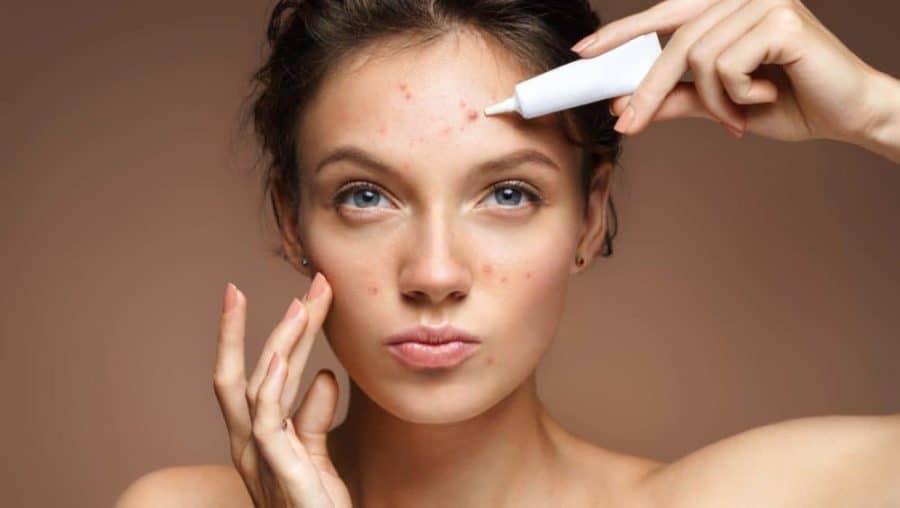Dermatologists in Germany have identified what could be a crucial link between acne and a deficit of omega-3 fatty acids.1
The findings, released during the European Academy of Dermatology and Venereology (EADV) Spring Symposium, could offer new opportunities for managing a condition estimated to affect nearly 23 million people in Europe.2
The team behind the research, based at the Department of Dermatology and Allergy in Munich, studied 100 patients diagnosed with acne and, by measuring nutritional parameters in their blood, found that 94% of the patients had below-recommended levels (8-11%) of omega-3 fatty acids. (ω-3-FA )1
They also investigated the patients’ diet and found that those who said they regularly consumed pulses, such as chickpeas and lentils, as well as abstaining from sunflower oil, had higher levels of the key fatty acid.
The dermatology team behind the research have called for clinicians to ask about dietary habits with acne patients when discussing diagnosis and treatment for their condition.
“Nutrition plays a pivotal role in the prevention, onset, and course of many diseases, including dermatologic disorders such as acne vulgaris,” says Dr Anne Gϋrtler, Lead author from the team at the Department of Dermatology and Allergy at Ludwig-Maximilian University, Munich, Germany.
“As part of a modern treatment approach, clinicians should provide patients with information on how their choice of diet might impact their dermatologic diagnosis and could potentially enhance therapeutic outcomes.”
“For years, a negative impact for acne vulgaris has been attributed to a western diet due to its direct effects on IGF-1 levels. Preventive and therapy accompanying nutritional measures, however, have not yet been sufficiently addressed. In this regard, omega-3 (ω-3) fatty acids (FA) appear most promising due to their anti-inflammatory effects.”
Her comments were supported by Asli Bilgic, Assistant Professor at the Department of Dermatology and Venereology, Akdeniz University, Turkey and a member of the EADV Communications Committee who said the findings “strengthened the idea of a healthy diet as essential for long term remission in acne vulgaris.”
Omega-3 fatty acids, found in food such as legumes, algae, nuts, seeds, non-farmed fish like wild salmon and sardines, reduce inflammation by stimulating the production of anti-inflammatory prostaglandins E1 and E3, leukotriene B5 and lowers levels of the insulin-like growth factor (IGF) – 1, the central hormone which induces acne.
In the study, patients with omega-3 levels lower than 8% showed higher IGF-1 levels, compared to patients without a deficit of this nutrient.
When the patients were subdivided into groups with a severe deficit of lower than 4%, levels of the acne-inducing hormone increased even further.
“To determine an effect that a supplement may have, baseline levels need first to be investigated to evaluate whether real deficiencies exist,” says Dr Gürtler.
“The objective of the present study was to explore acne patients’ ω-3-FA blood levels in erythrocytes (red blood cells) and correlate them with the clinical severity of the disease and patients’ dietary habits. While data presents a tendency toward ω-3-FA deficit in the general population, our study outlines aggravation in acne patients. The results of this study might serve as a basis for future interventional trials.”
Assistant Professor Asli Bilgic added:
“Acne vulgaris is a condition that weighs heavily on its many sufferers, including negatively impacting their personal and professional lives.
“It is also one of the most frequent reasons for consultation in general practice as patients look for ways to alleviate their symptoms.
“This exciting research helps us get one step closer to providing effective treatments for the millions of people who face embarrassment and stigma from this skin condition, looking beyond topical skin ointments and classical systemic treatments to a pathway which can have additional health benefits. It also strengthens the idea of a healthy diet is essential for long term remission in acne vulgaris.
“As dermatologists we are acutely aware of the impact on a sufferer’s quality of life which a highly visible condition like acne can have.
“Although this path needs further exploration, it can give hope to people looking for a way to manage their condition.”
The EADV’s Burden of Skin Diseases study2 found 5.4% of adults surveyed in 27 European countries suffered from acne which causes spots, cysts and oily skin predominantly on the face, back and chest that can lead to scarring. If this figure is extrapolated across the whole population of these countries, it indicates 22,870,000 people, the majority of them women, are affected.
References:
- Abstract 314 submitted to the EADV Spring Symposium: ‘Deficit of Omega-3 fatty acids in acne patients https://eadvsymposium2022.org/wp-content/uploads/2022/05/eadv_abstracts_book.pdf
- Richard M-A et al. The Burden of Skin Diseases [BOSD] in Europe: Preliminary results about the prevalence of the main skin diseases in Europe Abstract No. 358 presented at EADV Spring Symposium 2022. https://eadvsymposium2022.org/wp-content/uploads/2022/05/eadv_abstracts_book.pdf.
- Hay RJ, Johns NE, Williams HC et al. The global burden of skin diseases in 2010: an analysis of the prevalence and impact of global skin conditions. https://pubmed.ncbi.nlm.nih.gov/24166134/

